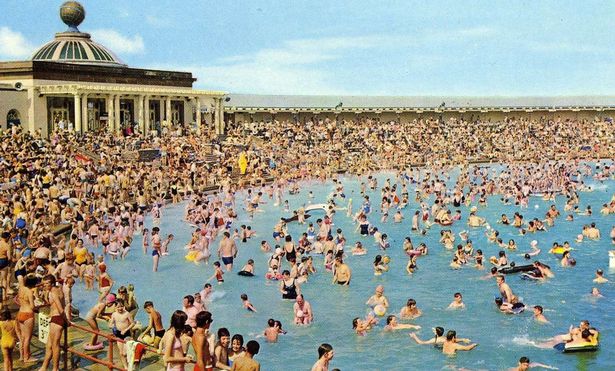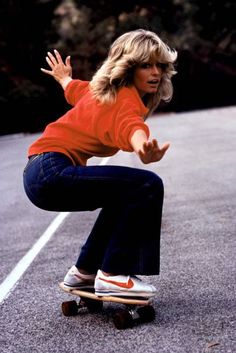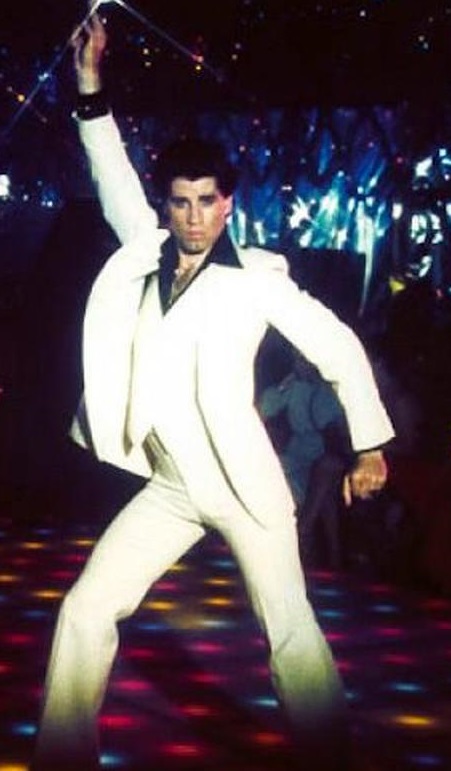
The Irish radio presenter Henry Kelly once drily remarked that “1976 was a good year because we were so much younger then.”
He was right, of course. And just possibly he was pushing back at the avalanche of nostalgic sentiment that would appear to surround that year in particular, with its sporting achievements and its technological advancements – not to mention, of course, the longest, hottest summer that wasn’t conspicuously induced by the 21st century affliction that is global warming.
But most experts would contend that there is much more to our wistful longing for our halcyon days than simply the desire to roll back the years. Somewhere embedded in the deepest recesses of our souls is a vision of an age which was less complicated, less stressful, less censorious, more carefree, more naive, more innocent, more fun, better humoured.
And yes, I accept that the memory can play tricks as it drifts only too easily into the realms of wishful thinking. When my heart aches for my adolescence it seldom invokes the fear and trepidation I felt as I took pains to steer clear of certain of my peers whom I might have upset on the bus home from school, or during a row over at the park. It has no recall of the heartache caused by the constant battles with my parents as they embarked upon their relentless yet ultimately futile quest to apply the brakes to my ascent into maturity. Certainly my powers of recollection stop far short of reactivating any angst I may have felt over my inability to communicate confidently or credibly with members of the opposite sex, or spots, or dandruff.
We know that, famously, it didn’t rain for several weeks during the summer of ’76, but I struggle to remember any time at all during the 1970s when the clouds opened up upon our dreams and aspirations. Neither was it ever cold. To my certain recollection it was like Narnia in reverse – always summer, and always Christmas too.
The political and economic situation was not as bad as it may have seemed at the time either. Twenty percent inflation, rubbish piled up in the streets, the unburied dead, hijackings, strikes, the looming threat of global thermonuclear war – none of this was owt but a mere irritant as we soaked up the sun and strutted without a care in our lairy loon pants and wide-awake shirts. Bleakness was our security, as I once wrote someplace else.
A sense of optimism

Greater minds than mine have expended volumes on trying to explain it all to us. The Greek-American academic Constantine Sedikides, a professor of social and personality psychology at Southampton University on the south coast of the UK, drew upon his own experiences of yearning for his native North Carolina. What he found was that, rather than making him unhappy, his sense of longing installed in him a sense of optimism for the future, as well as making him feel better about his present situation.
Working alongside him was a Dutch researcher by the name of Dr. Tim Wildschut, who considered accounts by survivors of the concentration camps during World War Two who had discussed recipes and family meals amongst themselves as a means of lifting themselves from the horror of their existing predicament. “We used our memories to temporarily alter our perception of the state we were in,” one told him. “It was not a solution, but the temporary change in perception allowed you to persevere just a bit longer.”
Unique and personal
Without doubt one of the most powerful triggers for nostalgic sentiment is music. Songwriters know this, which is why so many of them write about the past as a means of connecting with and inducing empathy from their intended audiences. In a separate article I have listed twenty classic songs which do precisely this, and there are many more besides.
Other songs, however, whilst they are not themselves rooted in themes invoking nostalgia, still have the potential to take us back to a time and place when we perhaps first heard them. Often their meaning to us is unique and personal, their lyrics rededicated or repurposed in such a way as to describe to us a particular time or event in our own lives. And the mind can play tricks too – the beautiful Orchard Road by Leo Sayer takes me back to 1976 like almost no other song, even though it wasn’t actually written until 1983. Still the Same, recorded in 1987 by seventies legends Slade, perhaps confusingly takes me back to a reunion enjoyed a little after that time with a group of friends from the 1970s, which itself in due course was to become the subject of a bout of pitiful nostalgic brooding.
The essence of nostalgia through musical memory can be captured in three words – location, situation and association. Lyrics which complement an image from the past lend a special hand to the process of triggering thoughts of a better time and place, whether real or imagined, but even an instrumental can stimulate powerful emotions in this way. The classic advert for Hovis bread incorporating Dvorak’s New World Symphony, itself a product of the 1970s (the advert, not the symphony), is a perfect case in point.
A different matter

How we use nostalgia is of course a different matter entirely. Mindful as I am of Sedikides’ observations, it is easy for those of a more obsessive bent to make the journey by degree from happy memories to emotional time-travel and even confusion. A person like myself, who at the best of times has little concept of a place called “now” and tends to see times and periods as stations along a railway track with trains continually travelling in both directions, can so easily become discombobulated. It’s not by coincidence that TV audiences and filmgoers have enjoyed so many visual excursions on the subject, from The Twilight Zone, through Catweazle, Dr. Who and Goodnight Sweetheart, to Life on Mars and Ashes to Ashes.
Back in 1975 singer-songwriter Steve Harley, of Cockney Rebel fame, penned what remains in my view one of the best songs he ever wrote. For me The Best Years of Our Lives, on the surface of it, can be interpreted either as a nostalgia ballad or as a celebration of a moment in the here and now, although instinctively I like to think of it in terms of the former. What is perhaps most significant is that it works either way, the difference between the two becoming intriguingly overstated the further one delves. Interestingly, when asked recently whether he enjoyed living and performing in the present day more than he had in the1970s, when he first came to prominence, Harley emerged from a brief lapse into fond reminiscence to assert that life today is better. Witnessing his moment of reflection first hand was a fascinating and quite illuminating expedition.
An uneasy paradox

The 1970s were innocent times, not just in our lifestyles but in the spirit in which we held our values. And here is the nub of it all, the ditch in which we nostalgics are destined to die unless we achieve some perspective in all our reminiscing. For the beliefs and assumptions which came so naturally to us and which were locked so firmly into the mainstream were often too preposterous for any of us to look back upon from astride our 2022 high horses with anything more approving than amused embarrassment.
It is an uneasy paradox indeed which leads us to draw comfort from the spirit of an age in which some of the worst innate prejudices could hide beneath the protective armour of humour and comedy. But it is that innocent spirit which fires our souls, not some of the places to which it inadvertently led us. The dour soullessness of enlightenment should not lead us to seek comfort from old ignorance, but rather to place it calmly into the context of its time.
Music and laughter
To put it at its simplest, we seek refuge in nostalgia because the conflicts and complexities of the lives we knew were always destined to be outlived by the glories we enjoyed. We were always right, it never rained, and nobody ever fought – or at least if we did, it was a transitory and entirely painless experience.
Trying to make too much sense of it all runs the risk of exploding the whole adventure. Let us never lose the mysticism and the magic of a journey to a land which was never quite there, but which rang with music and laughter under the benevolent and protective gaze of an eternal sun.
.
See also 20 Great Nostalgic Songs

If you enjoyed reading this article, make sure you stay updated with all Phil’s latest blog posts by signing up to receive his free Newsletter. You can unsubscribe at any time and your details will never be shared with any third party. Click here to sign up today.